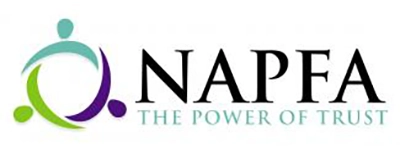The Wrong Time for Financial Planning
When you have a hammer, everything looks like a nail. When you have a fighter jet, everything looks like a target. It should follow that if you are a financial panner, everyone around you should need Financial Planning, right? It’s a bit heretical to say, but not everyone needs Financial Planning and there are some times when Financial Planning is not a good fit.
Financial Planning 101
Every practitioner of Financial Planning has a slightly different opinion of what Financial Planning is. The Certified Financial Planner® (CFP®) Board defines Financial Planning as “A collaborative process that helps maximize a client’s potential for meeting life goals through financial advice that integrates relevant elements of the client’s personal and financial circumstances.”
Even that definition still generates question marks and head scratches. Perhaps Supreme Court Justice Potter Stewart’s test of, “I know it when I see it” relating to obscenity and pornography gives Financial Planners and clients some room to create their own different definitions of Financial Planning.
Even if Financial Planning can take on many shapes and sizes, there will be some common elements such as a time commitment, lots of data gathering, numerous and sometimes lengthy meetings, exploration of goals, values, personal history, feelings, and of course numerical analysis. To my fellow financial nerds this probably sounds great. But the reality is we live in an attention and time-starved world today. Sometimes it’s just not the right time for Financial Planning.
The Wrong Times
Time Poverty
Because Financial Planning is a time commitment, time is the most compelling reason why Financial Planning might not be appropriate. It takes time to find a financial planner. It takes time to get comfortable with a financial planner. It takes time to gather data for the financial planner. Financial Planning meetings take time. Decision making takes time. Homework between meetings takes time. Financial Planning often involves bringing additional professionals such as estate attorneys and tax advisors on board. All this additional scheduling takes time.
Perhaps the number one reason why Financial Planning might not be a good fit is that you just might not have time right now.
Crisis
Winston Churchill is credited as saying, “Never let a good crisis go to waste.” That can be very useful for political operatives, but a crisis is rarely an opportunity for great Financial Planning. If a family member is terminally ill, it’s probably a family crisis and there are definitely financial considerations. The comprehensive Financial Planning process may not fit into the time available when there is a medical crisis.
Job Loss
A job loss would normally feel like a crisis. Clearly a job loss has financial ramifications, but Financial Planning with a professional is rarely free and competes for dollars that are needed to sustain a family until a new job and income stream arrive.
We don’t want to ignore the financial aspects of a crisis, but detailed Financial Planning might not be the best use of dollars and time if the sky is in fact falling.
Debt
When a family is deeply in debt, such as credit cards, car loans, or other non-cashflow producing loans, Financial Planning may not be the best course of action. Just as a job loss competes for cash and time, a crushing stream of payments competes for dollars that would be used to pay a financial planner. It’s highly likely that some level of financial advice will be needed to escape the debt, but it will be very difficult to take action on many of the other domains of Financial Planning until debt is under control.
Advanced DIY
It may be that you are already very successful at your own DIY Financial Planning, or you have other financial professionals in your life, and you just want a second opinion. Financial Planning as a profession and process has a hard time limiting its scope. If you just need a second opinion on a very specific topic, the Financial Planning process is probably overkill.
FNG (Just Starting Out)
Finally, if you’re just starting on your financial journey with your first job out of school or training then you absolutely do need to make good financial decisions, but you probably don’t need full scale Financial Planning. Financial Planning is good at handling complicated and complex situations but again, can be overkill for the limited problem set of someone who’s just starting their earning years.
Of course, it’s good form to identify solutions if you’re going to identify problems and so let’s move on to alternatives to Financial Planning.
Alternatives to Financial Planning
Limited Scope and Hourly Financial Advice
The primary alternative to Financial Planning as a comprehensive process is limited scope financial advice. The challenge with limited scope at financial advice is getting it from someone who is both professional and competent, but also a fiduciary who is willing to work with people in a limited scope fashion.
While many fee-only (no sales of products/acceptance of commissions) financial planners affiliated with organizations such as NAPFA, XYPN, and the Garrett Planning Network will work on an hourly or limited scope basis, the majority tend to structure their services based on comprehensive long-term engagements.
Since there is no regulatory definition of financial advisor, you also must be wary of anyone that simply uses that title. Before choosing to take financial advice it’s important to verify the credentials, licensing, disciplinary background, and service models of the person you’re considering working with. All too often, a person with the title financial advisor is really a salesperson that gives advice designed to make you buy their product. Caveat emptor.
You may find that a financial planner who works on an hourly basis is a great fit for your limited scope needs for several reasons. The willingness to work on an hourly basis usually implies that the professional is compensated for their time, expertise, knowledge, and wisdom. This tends to remove the conflicts of interest associated with selling financial products. A short term, hourly financial advice relationship might be a good way to create a bridge between your time sensitive financial advice need, your time poverty, and a future where you’ll have more time to go through the full Financial Planning process.
Specialized Help
In times of crisis, especially medical crises, finding an advisor or other specialist that concentrates on your type of need could be most effective. If you’re dealing with terminal illness, a planner that works with such situations frequently will be most proficient at triaging the critical issues and saving the rest of the planning process for later.
During a job loss, hourly financial advice might help the truly critical actions that can help mitigate the situation. For example, if leaving a job where equity compensation such as stock options are a factor, a limited scope engagement with and advisor focusing on equity compensation could save 10s or even hundreds of thousands of dollars in taxes.
Debt Needs Its Own Focus
Author and radio host Dave Ramsey pretty much owns the anti-debt space. He argues that families should not invest until they have paid off all non-mortgage debt. Many families that seek his help are so burdened by debt that they begin to lose hope of ever having enough resources to live their life on their own terms.
While some types of debt such as student loan debt can benefit from expert analysis, getting out of debt is usually more of a behavior challenge than a math or analysis problem. Getting out of debt usually starts with a commitment to ending the practice of using debt. As such, comprehensive Financial Planning can be a square peg for the round hole.
Comprehensive Financial Planning does address cash flow and debt management but also integrates tax planning, investment actions, insurance planning, and estate planning. Those can be difficult topics to even consider when there is too much month left at the end of the money. Instead of Financial Planning, counseling or starting on a program such as Dave Ramsey’s debt snowball can be much more effective for freeing up both cash and headspace for more complex financial topics.
Free Can be the Right Price
For new college graduates and others just starting out with a paycheck, the great democratization of financial information in the 21st century means that you probably don’t need to spend much if any cash to get started with the financial information that you need.
That same great democratization means you’re beset by the tyranny of choice when sifting through the myriad of books, blogs, and podcasts that can help you get the basics squared away, but if the advice deviates too much from this…
- Cashflow: Spend less than you make. Tell your dollars where to go. Full stop.
- Insurance: Insure inexpensively and only against catastrophic outcomes. It’s not an investment until you’re trying to signature manage six and seven figure tax bills.
- Taxes: Other than Roth, there isn’t a lot to worry about these days unless you sell property, own a business, or earn next to the edge of a tax bracket. Oh, and mind State Residency!
- Investments: Pay yourself first, buy the whole haystack versus searching for needles, and if in doubt, ask what would Warren Buffet do?
- Education: It’s not getting cheaper, but you’ll want to save for kiddos but only after putting your own mask on first (fund your own retirement first).
- Estate Planning: Unless you don’t love the people in your life, you need a Will, Living Will, Health Care Power of Attorney, and probably a General Power of Attorney. They’re free at the JAG.
… then there’s a good chance you’re getting sold something you don’t need.
In addition to full DIY learning mode, you can pay a modest amount for an online course if you need more structure and accountability. And of course, your base has a Personal Financial Counselor available that can help you with the basics for my favorite price: FREE!
Cleared to Rejoin
Hopefully you’re not moseying away from this article thinking you’ll never need Financial Planning. The reality is that comprehensive Financial Planning can be a game changer to bring organization, objectivity, proactivity, partnership, accountability, and education to the complex world of personal finance. Financial Planning does demand time in addition to cost. Time is often the biggest barrier.
Periods of crisis, significant debt, job loss, as well as periods of simplicity such as the start of adulthood can create a financial advice and knowledge need that isn’t necessarily a Financial Planning need. Limited scope financial advice from a fee-only fiduciary financial planner may scratch an itch that Financial Planning simply cannot.
Fight’s On!
Winged Wealth Management and Financial Planning LLC (WWMFP) is a registered investment advisor offering advisory services in the State of Florida and in other jurisdictions where exempted. Registration does not imply a certain level of skill or training.
This communication is for informational purposes only and is not intended as tax, accounting or legal advice, as an offer or solicitation of an offer to buy or sell, or as an endorsement of any company, security, fund, or other securities or non-securities offering. This communication should not be relied upon as the sole factor in an investment making decision.
Past performance is no indication of future results. Investment in securities involves significant risk and has the potential for partial or complete loss of funds invested. It should not be assumed that any recommendations made will be profitable or equal the performance noted in this publication.
The information herein is provided “AS IS” and without warranties of any kind either express or implied. To the fullest extent permissible pursuant to applicable laws, Winged Wealth Management and Financial Planning (referred to as “WWMFP”) disclaims all warranties, express or implied, including, but not limited to, implied warranties of merchantability, non-infringement, and suitability for a particular purpose.
All opinions and estimates constitute WWMFP’s judgement as of the date of this communication and are subject to change without notice. WWMFP does not warrant that the information will be free from error. The information should not be relied upon for purposes of transacting securities or other investments. Your use of the information is at your sole risk. Under no circumstances shall WWMFP be liable for any direct, indirect, special or consequential damages that result from the use of, or the inability to use, the information provided herein, even if WWMFP or a WWMFP authorized representative has been advised of the possibility of such damages. Information contained herein should not be considered a solicitation to buy, an offer to sell, or a recommendation of any security in any jurisdiction where such offer, solicitation, or recommendation would be unlawful or unauthorized.





